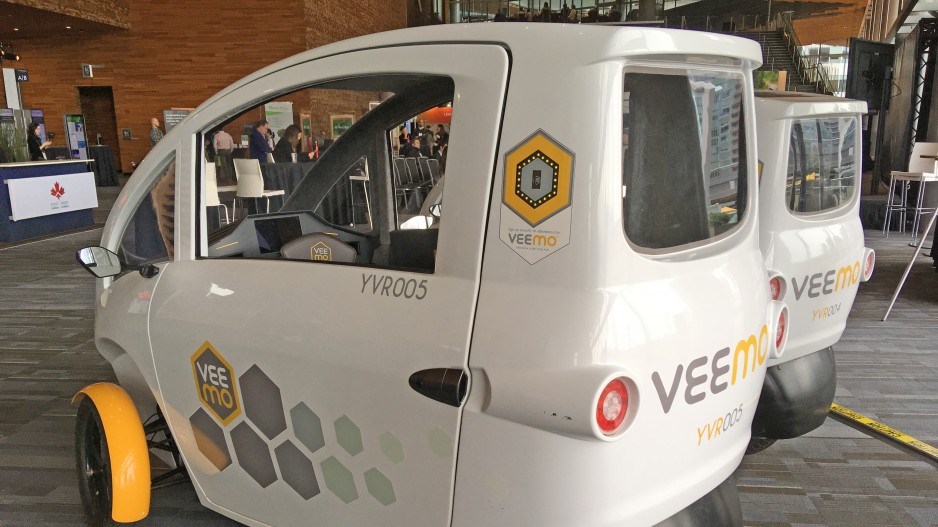Sandra Phillips likes to describe commuting patterns as “sticky.”
“We go to work and we always use the same route, we always use the same mode. It’s very difficult to shake people out of that,” said the CEO of Vancouver-based Movmi Shared Transportation Services Inc. February 12 at the Globe Forum in the city’s downtown. “I don’t think we can just throw more technology at people.”
Phillips and fellow panellists debated at the forum how commuters could be shaken out of their typical routines – which often involve driving by themselves to work – if the country were to reduce its carbon output.
Movmi began leading a joint initiative last October between TransLink, the Modo Co-operative car-share network, BCAA’s Evo car-share service and Vancouver Bike Share Inc. (operating as Mobi).
The initiative sees about 200 workers at 14 businesses use special Compass cards to access rides from a variety of options – cycling, public transit and car-sharing – as part of an integrated service.
“What we’re trying to do is get rid of you bringing your car to work,” Phillips said. “If you have something that ties it all together, it’s more convenient, and then if you can play with that affordability, then I think that’s the magic recipe to get people out of their personal vehicle into shared, electric modes.”
Other Vancouver companies have been pursuing similar initiatives to make multi-modal travel more accessible to commuters.
Spare Labs Inc. revealed February 10 that the transportation-as-a-service (TaaS) platform developed by its joint Canadian-Norwegian consortium, SAGA, would be operating a transit service facilitating both driverless and human-driven buses in Norway and the Netherlands.
The TaaS platform allows commuters to punch in their location and find various travel options to get to their final destination.
Buses may even be rerouted in real time depending on demand instead of travelling along fixed routes on fixed schedules.
“We’ve seen a tremendous demand for this type of platform from around the world. And it’s quite daunting for a city to see all this technology being developed around them, and it’s difficult to know what’s relevant and what’s not,” Spare Labs chief operating officer Josh Andrews told Business in Vancouver.
He said his company’s goal is to make the technology as accessible as possible, but so far Canadian markets have been less willing to take the leap than big cities such as Dallas or small towns in Europe.
The SAGA platform will initially be deployed in small towns so that it can learn in simpler environments where pedestrian traffic isn’t nearly as heavy as it is in dense urban areas.
“When we’re looking at launching services today with autonomous vehicles, those [small towns] are the lowest-hanging fruit for getting autonomous vehicles off the ground,” Andrews said.
Todd Litman, executive director of the Victoria Transport Policy Institute, said added convenience for commuters is one of the most effective ways to change travel routines.
“If you knew what to do and there were convenient payment systems, it would be more convenient for you to use an alternative to driving than to just drive,” he said.




